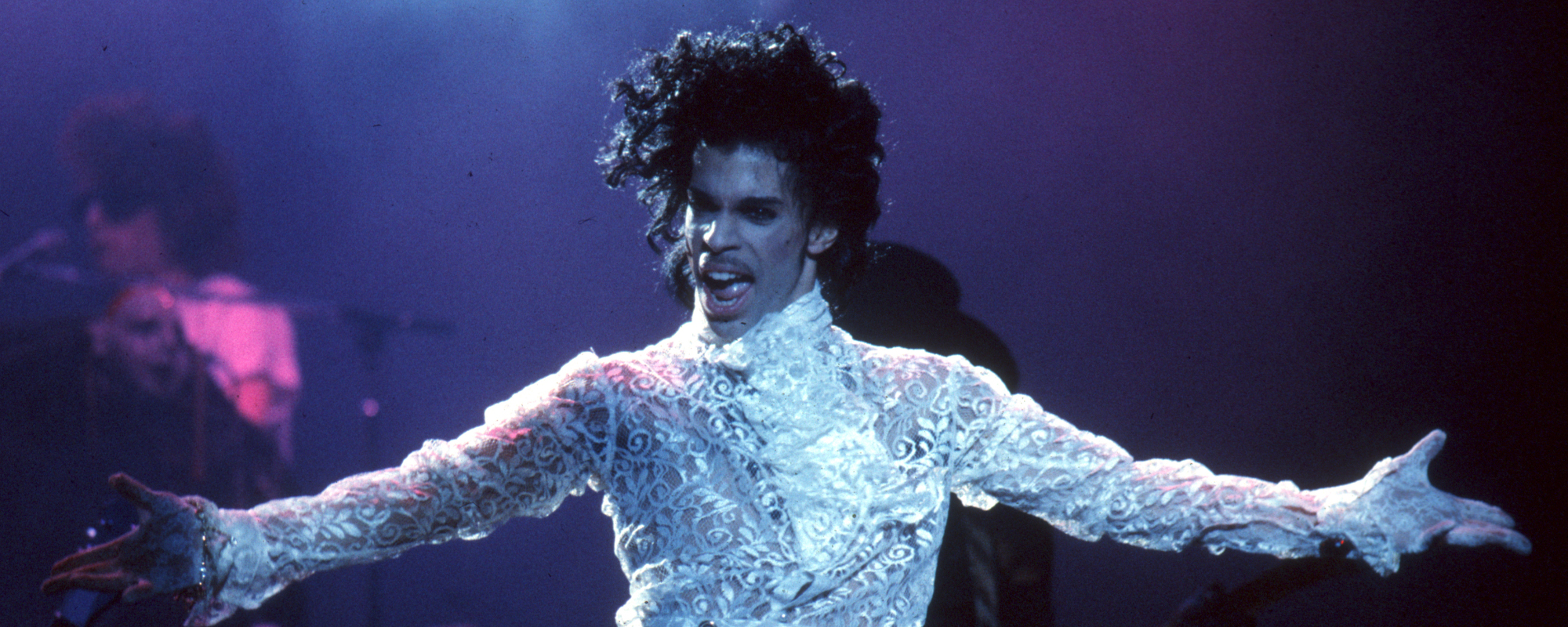“Drummer seeks musicians to form band.” That message tacked to the school notice board of Mount Temple Comprehensive School in Dublin, Ireland in 1976, was the beginning of U2.
Videos by American Songwriter
“How casually our destiny arrives,” wrote Bono in his 2022 memoir Surrender: 40 Songs, One Story.
The notice was placed by drummer Larry Mullen, Jr., who wanted to form a band after his sister bought him his first drum kit. There, inside Mullen Jr.’s kitchen at 60 Rosemount Avenue on Saturday 25, 1976 were a cast of “musicians” trying out for their respective part.
“This odd group of people convened in my kitchen in Artane [Dublin],” said Mullen Jr. “And that’s where it started.”
Kitchen Renovation
Already trained in more jazz drums at the time, Mullen Jr. was more intent on starting a rock band. Amongst, the amplifiers, instruments, and his own metal kit stuffed into his kitchen, were his future bandmates, singer Paul Hewson (Bono), guitarist Dave Evans (The Edge), and bassist Adam Clayton.
Originally, they also had two other members in the band, The Edge’s brother Dik Evans and Ivan McCormick, who left in the early days of the band. “I still pinch myself that that week in 1976, the week I’d joined the band that was to become U2, was also the week that I formally asked Alison Steward to go out with me,” said Bono, in Surrender, of how the band formed the first week he met his future wife, who also attended Mount Temple with the band.
Outside of Mullen Jr., who had more proper training, the band was very skilled in playing but somehow started making music together. “I suppose a watershed moment would have been seeing The Jam on Top of the Pops, and realizing that actually not knowing how to play was not a problem,” said The Edge. “Music was more about energy and trying to say something and not necessarily about great musicianship.”
Feedback and The Hype
Also fueled by punk rock, particularly the musical mavericks like The Ramones, Television, and Patti Smith, who were swarming CBGBs in New York City at the time, the teens initially called themselves Feedback and started rehearsing in Mullen Jr.’s kitchen.
They later switched their name to The Hype, under the tutelage of mentor Steve Averill, singer of the Irish punk band The Radiators from Space. Averill would eventually help the young players land on an even better name, one that could be easily printed on posters, T-Shirts, and other merchandise: U2
The other suggestion for a band name was The Flying Tigers, which Bono nixed.
U2’s First “Manager”
Clayton had started playing guitar at 13 and later convinced his parents to get him a bass. “It just sounded good to me,” said Clayton. “Deep and fat and satisfying.” The bassist was also quite the entrepreneur, booking some of the band’s earliest shows—and even managing them for a brief period.
“Adam might have been the most fun at school, but he was the first person to be serious about our band,” said Bono in Surrender. “It wouldn’t be long before he’s talked someone into printing up cards [business cards] bearing the legend ‘Manager of U2.’ His posh accent and air of casual confidence got him off the hook for all kings of unusual behavior in 1970.”
Paul McGuinness
After briefly being managed by Clayton, the band met Paul McGuinness during one of their gigs, supporting a band called The Gamblers. By 1979, the band released their EP Three (also known as U2 3) via CBS Records. A year later, U2 signed with Island Records.
U2 released their debut album, Boy, in 1980 with the band’s earliest songs “I Will Follow,” “Stories for Boys,” and “Out of Control.” The latter track was the first song Bono ever wrote for U2 on his 18th birthday, May 10, 1978.
Boy was followed by October in 1981, then their first No. 1 release, War, in 1983, with hits “Two Hearts Beat As One” and “New Year’s Day.”
“There was magic, you know, that’s all we had,” said Bono in a 2022 interview, who said how the band started was “preposterous,” but he knew he had melodies and words in his head that needed to get out. “And of course, there was a desperation to make something of our lives.”
Photo: Ian Gavan/Getty Images for MTV












Leave a Reply
Only members can comment. Become a member. Already a member? Log in.